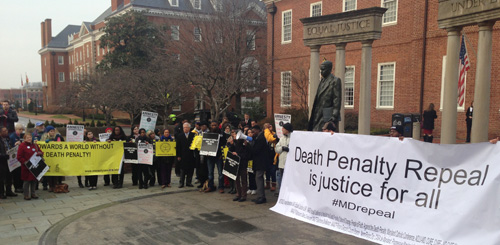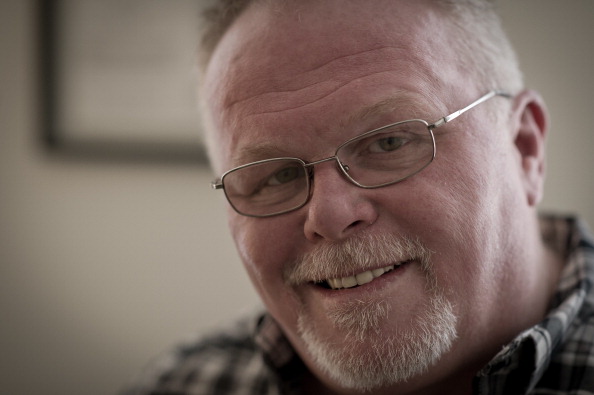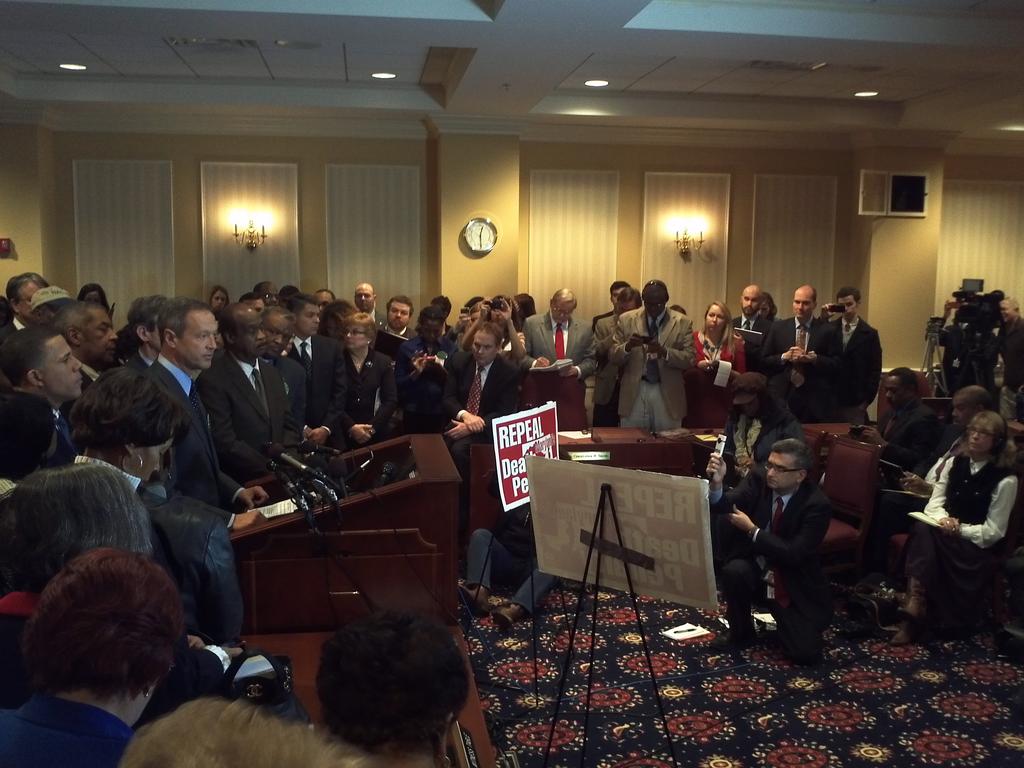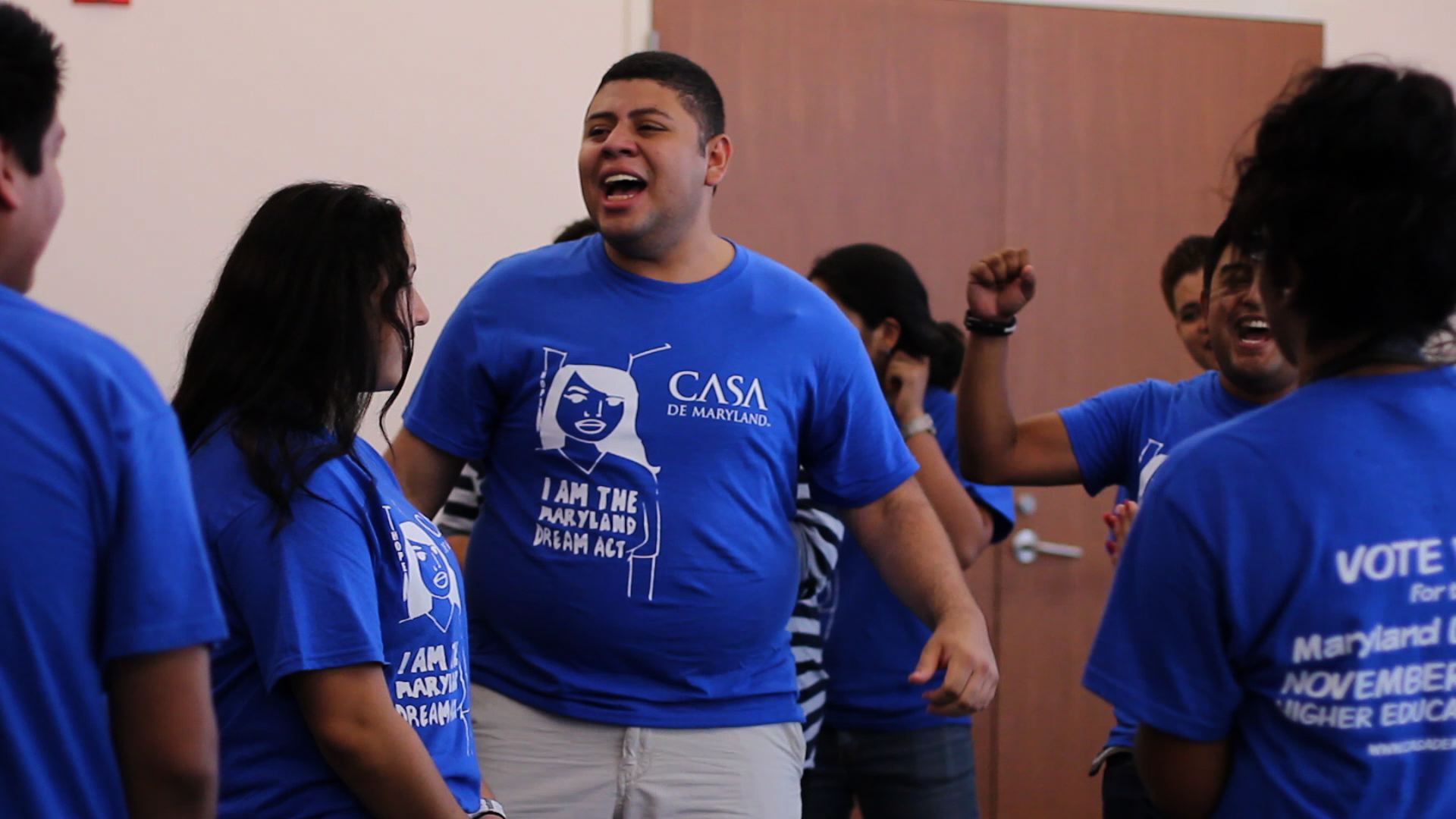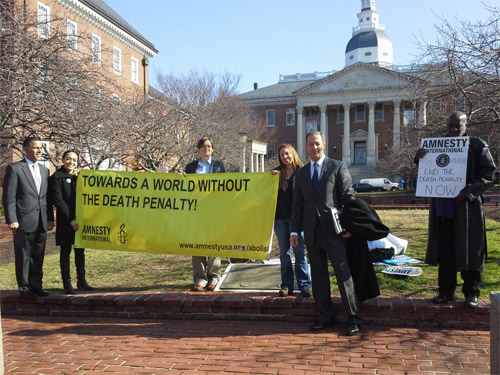
Maryland Governor Martin O’Malley and Lt. Governor Anthony Brown with Amnesty activists calling for death penalty repeal in Annapolis, Feb. 14, 2013.
On Valentine’s Day, in overflowing hearing rooms in both the House and Senate, Maryland legislators heard testimony from victim’s family members, former prison wardens, religious leaders, an innocent man who once faced execution in Maryland, the state’s Lieutenant Governor, and Governor Martin O’Malley. And what they heard, over and over, is that the death penalty must be abolished.
As in past years, those testifying in favor of repealing capital punishment far outnumbered those speaking for retaining it. That’s nothing new, but in other ways this year has been different. The crowds that gathered to witness the hearings were larger. The high-level political engagement has been stronger and more focused. And the understanding that the votes exist to pass death penalty abolition into law is now fully entrenched in the Annapolis political landscape.
